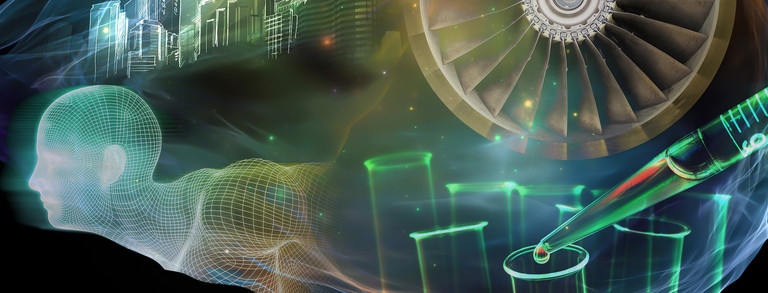Geometric Deep Learning
Our research area "Geometric Deep Learning" deals with an exciting and forward-looking direction in the world of artificial intelligence. We would like to present our topics clearly here.
What is Geometric Deep Learning?
Geometric deep learning is a sub-discipline of machine learning that deals with the processing and analysis of data that is available in a geometric structure. These structures can be diverse, from 2D images and 3D models to networks or graphs. The aim is to develop algorithms that can efficiently extract existing knowledge, especially for arbitrary graphs, and use it for various tasks.
Our current research topics:
-
Expressivity of Convolutional Operators: One focus of our research is the investigation and improvement of convolutional operators in Geometric Deep Learning. The efficient learning of arbitrary functions on graphs is a challenge for current methods. In general, the goal in constructing convolutional operators is to assign each node with the surrounding structure within the graph and corresponding features to useful representations as efficiently as possible. Structural differences should be taken into account by the operators and represented differently. The theory here is closely related to the graph isomorphism problem. We also investigate the required properties of operators to find diverse representations based on the initial features.
-
Efficient processing: Another central research area of our group is the efficient processing of arbitrary data structures for the use of expressive models in resource-constrained systems. Here we are concerned with improving our understanding of the existing knowledge in complex models and using these insights to transfer this knowledge to more efficient models using knowledge distillation. We are also researching the compression of data structures for which expressivity should be maintained or increased.
We look forward to welcoming computer science students interested in these exciting research topics to our website. If you have further interest in our research or would like to learn more, please do not hesitate to contact us.

